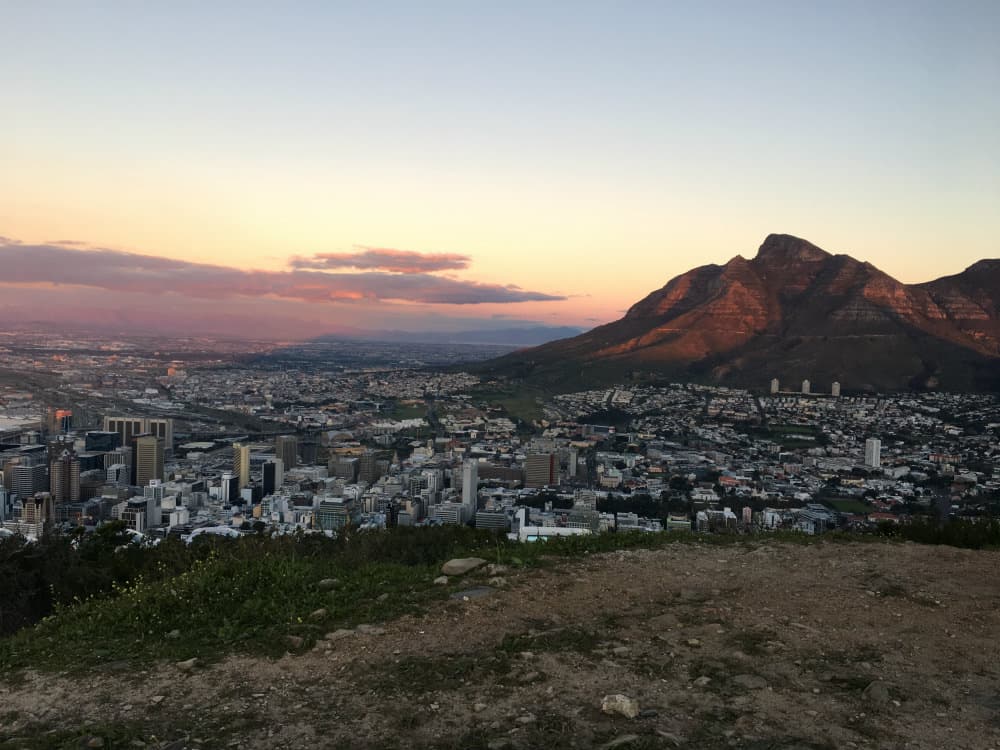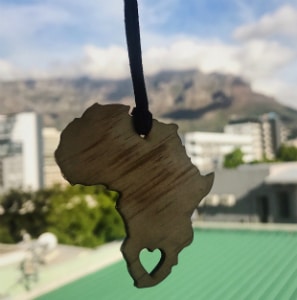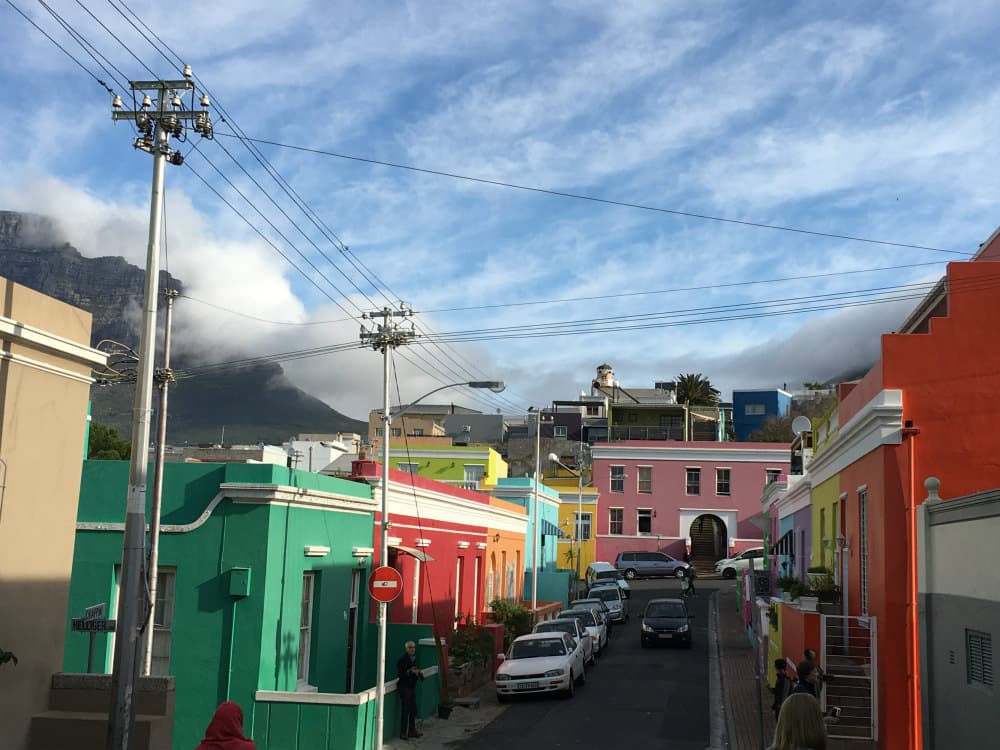This internship preparation checklist will make your life easier!
We all know how stressful it can be when you’re preparing travel documents according to certain internship requirements. You might not know what to expect and there are so many things you need to think of. Our Communication intern Marie has been there as well. To help you out with your preparations she created an easy step-by-step internship preparation plan.
Before going on my communications internship with Roots Interns in Cape Town I googled all sorts of practical things I had to arrange, the weather conditions, vaccinations, etc. I ended up with a longer-than-expected list that wasn’t really structured, to be honest. In addition, there are always things you are likely to forget or to avoid when going abroad for a long time. Take a look at my improved internship preparation plan to give you a good start with your planning.
STEP 1: Paperwork
I know, no one really enjoys the paperwork. However, since you can’t avoid it, my tips can at least make it much easier for you! First things first, check if you need a visa before you arrive at your destination or if you get one upon arrival at the airport. Also, it is important to know what kind of visa you need, how long it takes to get one and which paperwork you need to submit. For visa information contact your host organization and the country’s embassy or consulate in your home country.
Secondly, check with your organization, university, etc. what kind of documents they require from you and make a list. Do you need a criminal record check for the work with children? If you plan to rent a car, for example, do you need an international driver’s license? Your host organization and university will be able to answer all your questions in detail.
Getting travel insurance and finding one that fits your needs can take some time, especially if you, like me, have never done it before. Therefore, do it as soon as possible. Depending on personal preferences you can find various insurance packages. For example, do you want coverage for lost, stolen or damaged luggage? Or be able to claim a refund in case you have to cancel your trip? Etcetera. However, you always have to make sure that your costs for medical assistance and repatriation fees are covered. Maybe this is already part of your normal medical insurance but otherwise, make sure to include this in your travel insurance. Trust me – you don’t want to pay for the medical costs yourself as they can be much higher abroad.
In some countries people prefer paying everything in cash, in others, you can even pay the smallest amounts with credit or debit cards. Either way, it can be handy to get a credit card that offers free international withdrawals and payments. Most ATM’s abroad will still charge you a small fee, but at least your bank won’t charge you. Remember always to check with your bank beforehand if your credit and/or debit card work at your destination. This is just a small thing to remember but can lead to huge frustrations if your card doesn’t work. Besides, a credit card can also be handy if you want to rent a car. Many car rental companies request a credit card in the name of the driver for payment of the deposit and car rental fee.
Lastly, make copies or scans of important documents and cards. Also write down the emergency phone numbers of your bank, insurance, contact persons at your host organization, etc. I know that it might be annoying to copy all your important documents and cards but if you ever lose them or they get stolen, you wish you would have made copies. I speak from experience here. And another tip: if you scan them or take pictures, you can email these to yourself, so you have them in your mailbox (or Google Drive or Dropbox) as well.
STEP 2: Health & safety
The first thing I did, was checking with my doctor at home if I need any vaccinations or malaria medication for South Africa. Some vaccinations are only recommended if you stay for a longer period or in a certain region. Therefore, think about your travel plans in advance. Will you only stay at your internship location or do you want to travel somewhere else? Don’t forget to check if your health insurance at home covers the costs for the vaccinations!
In case you have to take medication on a regular basis, take a copy of the prescription with you. It will make it easier when crossing the border or getting new medication. Also, check for the availability of your medication abroad and if it is not available, bring enough of it.
Another thing that is famous for being avoided or forgotten is to visit your dentist for a check before you leave. It’s easier to visit your dentist at home than in another country.
Know the water situation at your destination before you go! Some countries or cities in Africa experience water shortages leading to water restrictions affecting every individual. Be aware of the situation and familiarize yourself with the amounts of water it actually takes to cook, shower or flush. I was surprised by the crazy amounts of water I actually consume back home flushing the toilet alone! Furthermore, it is always good to check if the water at your destination is drinkable. Luckily, here in Cape Town, it is safe to drink the tap water. So bring your own water bottle. It’s really nice, cheaper and you will save the environment from more plastic!
Concerning, the safety at your destination, there are some general rules for traveling to Africa which should be followed for your own safety: it’s better (and more fun) to travel in groups, avoid walking around alone after dark, familiarize yourself with local customs and keep your valuables out of sight and at a safe place. However, the best way is to check with your host organization and family or friends that might have been to that country before. Most importantly don’t be discouraged by the way the media presents certain places and do your own additional research. Sometimes the crime statistics for a country or city are quite high but it may not apply to the location you are based in.
STEP 3: Accommodation & public transport
It can be tricky to find accommodation abroad if you are not there yet. You don’t know the nice neighborhoods nor can you physically visit the accommodation. So, how can you find the perfect place for yourself? Your first address should be your internship organization. Some organizations offer accommodation to all their interns or for specific internships. If that is the case, you don’t have to worry about it, your organization will organize it for you! And otherwise, ask for recommendations on nice places to live and the usual prices for rent. It is always best to ask the locals.
Different countries have different standards if it comes to accommodation. Things that are seen as normal in your country might not be a standard in the country where you will be living for a few months. Back home in Germany, for instance, it is pretty normal to receive a bill from the government for the electricity that you used. Here in Cape Town you often have prepaid electricity which works the same as a prepaid sim card for your phone. Therefore, check if things like Wifi, electricity, bed linen, meals or kitchen equipment are provided to avoid unpleasant surprises.
The public transport situation can be a crucial factor when choosing accommodation. Sometimes the nice areas are further away from your office. If public transport is not available, unreliable, not safe or too time-consuming, you might want to consider moving to a place closer to your office. Remember, you probably work every day and if your daily commute takes an hour each way, changing buses twice, this will definitely take away the joy of living in a nice area. Rather save the weekends or days off for traveling around. Again, locals know best, so ask your host organization for advice.
STEP 4: It’s time to pack
Definitely my favorite step. I’m always really excited to pack my bags for a new adventure. Usually, I start thinking about which clothes to bring a week or two before I actually have to pack. Anyway, I don’t know if it is only me but I always feel I have packed the wrong clothes. So here are some useful tips (that I should have followed as well) to pack your bags right.
You probably looked up the weather for your destination just like I did. My research showed me the average weather conditions for Cape Town in winter with temperatures ranging from 10-20 degrees Celcius. Not too bad. But it didn’t show me most buildings don’t have central heating. This means, even if you think it is not too cold outside in your light winter jacket or a warm sweater, you also might need to wear that jacket or sweater inside your office or home. For a person coming from a country with cold winters, that is quite unusual. So, make sure to not only check the weather but also your living and working conditions abroad and pack accordingly.
Next, you should ask yourself; what am I doing abroad? Ask for the dress code at the office and if your internship also includes hands-on tasks where your clothes can get dirty. Bring old, less-loved clothes if that is the case. Will you be living in a city or a rural area? In cities, you can always buy new shampoo or toothpaste, so you don’t have to bring huge amounts of supplies with you. In rural areas, it can be the other way around.
I’m not a person who plans everything ahead but it is good to get an idea of what you intend to do during or after your internship. Are you traveling to a place that is well-known for its hiking trails or beaches? Do you plan to explore the country and go on weekend trips or add a few weeks of holiday after your internship? It goes without saying but do pack accordingly. A sleeping bag and matt can come in handy when you plan a camping trip for example. An internship abroad is not only a valuable learning experience; it also gives you the possibility to explore the world!
Last but not least, don’t forget to bring a travel adaptor. If you arrive at your destination late at night, after a 19-hour flight, you want to charge your phone or laptop right away. Don’t let your parents wait another day before you tell them you landed safely.
If you need a packing list for your internship in Cape Town view this blog post.
STEP 5: Mental preparation
This step is all about familiarizing yourself with the living conditions, culture, work, and your own expectations. Africa is a continent with thousands of different blending and clashing cultures. South Africa, for instance, is a westernized country but also has large rural areas that are more like the rest of Africa and the inequality is often very visible. You have to prepare yourself for that. So, do your research on the culture and customs before you leave.
To prepare yourself for the internship itself, it is best to know the following:
- What is expected of you?
- What will your daily tasks be?
- Will you be doing practical or office work? Or both?
- What do you want to get out of the internship?
Before you start working you don’t have to know all your tasks in detail, but it is good to get an idea of what you will be doing.
I hope that I could bring some structure into your internship preparation phase. If you do your internship with Roots Interns, they will provide you with a very useful welcome package, that contains all the important information about your destination. Don’t hesitate to ask all your questions. Enjoy your internship preparation!
More Interesting Reads
- How to mentally prepare for an internship abroad
- The life of a Cape Town intern
- How to finance an unpaid NGO internship
- Our impact











